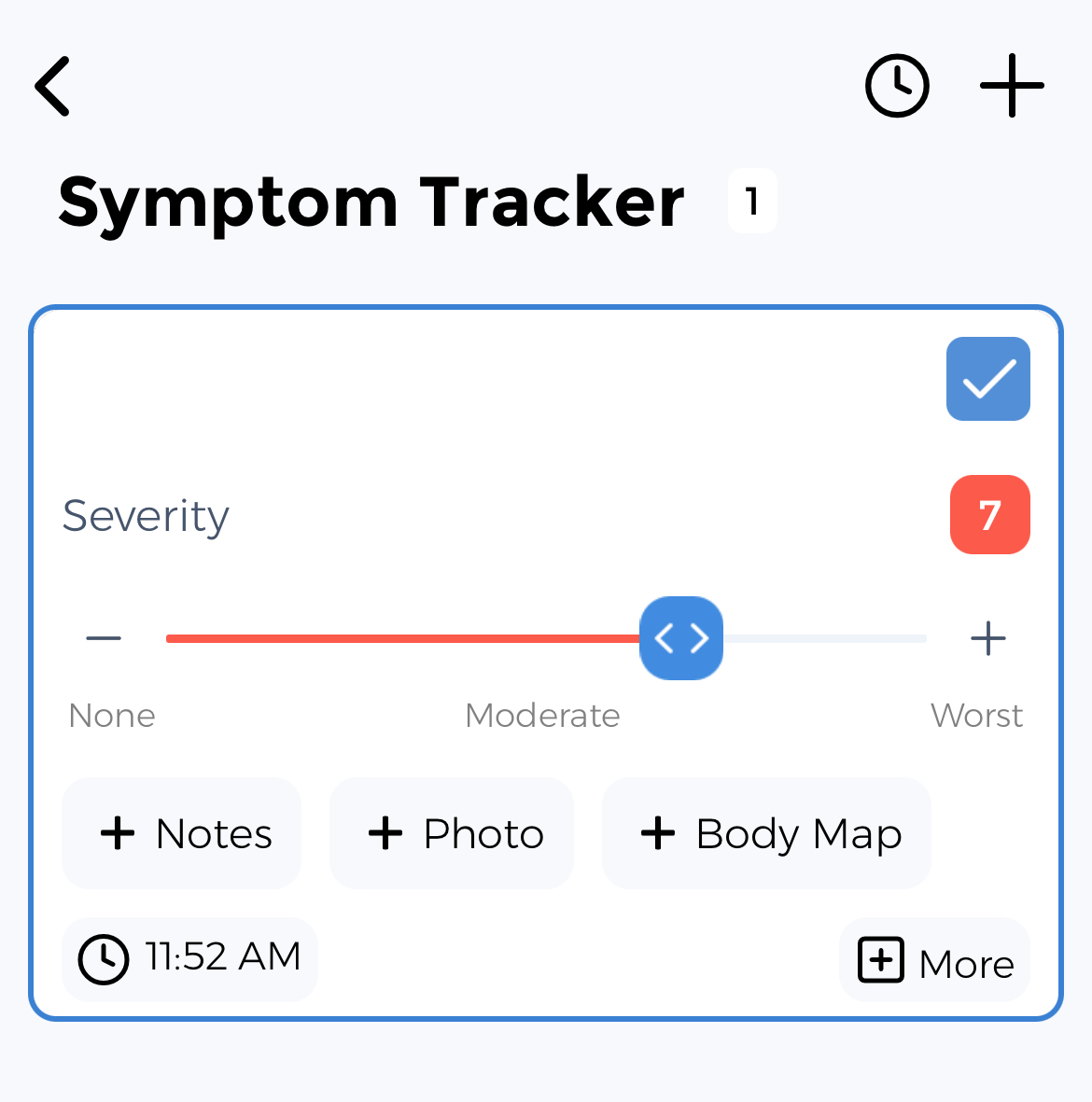Endometrial Cancer Symptom Tracker: Your Health Assistant
Living with Endometrial Cancer means dealing with abnormal vaginal bleeding, postmenopausal bleeding, vaginal discharge, and more. But here's the truth: Data is your most powerful tool. Every logged symptom reveals patterns—so you can take informed action.
Endometrial cancer is a type of cancer that begins in the lining of the uterus (endometrium). It's most commonly diagnosed in postmenopausal women and often detected early due to abnormal vaginal bleeding. Tracking symptoms, treatment effects, and recovery progress helps manage the condition and improve outcomes.
Key Endometrial Cancer Symptoms You Should Track
Struggling with symptoms like these? Tracking them reveals patterns, triggers, and how they impact your daily life.
Abnormal vaginal bleeding
Postmenopausal bleeding
Vaginal discharge
Pelvic pain
Pain during intercourse
Difficulty urinating
Weight loss
Fatigue
Enlarged lymph nodes
Abdominal distension
Lower back pain
Changes in bowel habits
Track Your Endometrial Cancer Treatments
Tracking how these common treatments affect your symptoms can help you and your healthcare provider optimize your care plan:
Our tracker helps you monitor when you take medications and how they affect your symptoms over time.
Standardized Endometrial Cancer Assessments
Complete these evidence-based assessments in the App to measure your severity and monitor your progress:
⚡ Knowledge Is Your Superpower
The difference between feeling overwhelmed by Endometrial Cancer and feeling in control starts with data. When you track your symptoms, you transform uncertainty into clarity. Every data point brings you closer to understanding your unique patterns.
It's free to try for anyone—whether you're managing your own condition, supporting a child, helping an aging parent, or assisting a partner. Our tracker adapts to your specific role in the health journey.
How the CareClinic Endometrial Cancer Symptom Tracker Adapts to Your Needs
Adults
Caregivers
Parents of Children
Young Adults
Your Complete Endometrial Cancer Management Toolkit
Uncover Patterns & Insights
Map your Endometrial Cancer symptoms like a detective solving a case.
Understand Your Medication's Impact
Turn guesswork into strategy. See how treatments affect your well-being with clear health insights.
Objectively Measure Your Progress
Use clinically validated tools to objectively measure your progress.
Other Tools You May Like...
Plus 6 more specialized tracking tools available
Access All Tracking ToolsAlso Supports Other Conditions Like
Uterine Fibroids Tracker
Uterine Fibroids warriors use our tracker to monitor heavy menstrual bleeding, prolonged periods.
Endometriosis Tracker
Endometriosis warriors use our tracker to monitor pelvic pain, painful periods.
Obesity Tracker
Obesity warriors use our tracker to monitor weight gain, shortness of breath.
Hypertension Tracker
Hypertension warriors use our tracker to monitor headaches, shortness of breath.
Success Stories from Our Community
"Using the various trackers together gave me a complete picture of my Endometrial Cancer. The visual charts in the weight tracker helped my doctor understand my experience, while the emotional wellbeing tracker showed me how to improve my daily management."
"This tracker transformed my Endometrial Cancer management. When I was missing too much work, but now I can adjust my routine based on hard evidence and that's been life-changing."
Take Control of Your Endometrial Cancer Journey
Transform from feeling like a passive patient to becoming an informed self-advocate. Join thousands who've discovered new insights about their condition.
Designed by people who understand the daily challenges of managing chronic conditions, we're here to support you and your ❤️ ones.
Download Your Endometrial Cancer Tracker NowYour Data is Protected
Private & Secure
HIPAA Compliant
GDPR Compliant
Never Sell Data
Your data is yours: You get full control over who can view your information. CareClinic keeps all your data secure and encrypted.
References based on studies by:

